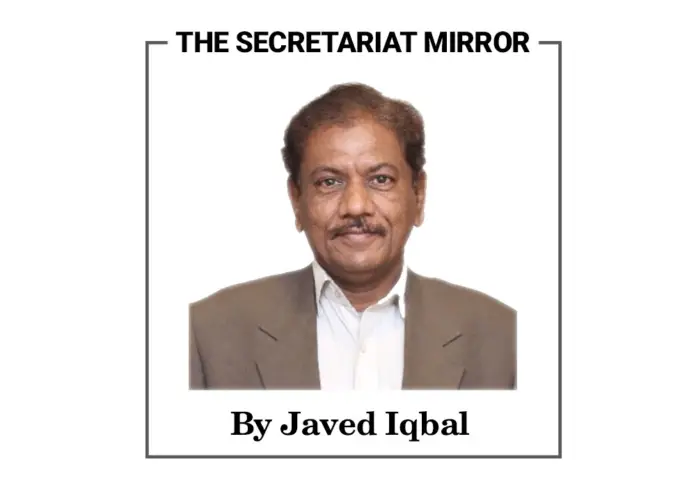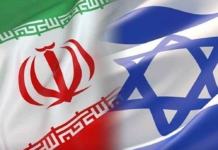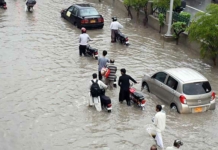When different political parties rule the provinces and the federal capital, the conflict between the federation and the federating units is all but natural.
It is the first instance in history that the prime minister’s party is not in power in any of the provinces. The consecutive events made headlines when office bearers, in a way, interpreted the law as they desired.
The proponents of provincial autonomy say that the federal government should be small in size as far as administrative affairs are concerned. They say that a huge military to defend the borders and formulation of foreign policy should be the only subjects of the federal government.
They say, “The provincial assemblies created Pakistan; they are not the creatures of the federation.” The establishment wants a centralized state structure with a powerful hub.
A V Dicey, a constitutional theorist, was of the view that federating units are coordinating units of the federation.
Before the 18th Amendment was introduced in the Constitution of Pakistan, the federal government had a lot of powers as compared to the provinces. But after the said amendment that ended the concurrent list, the provinces have become more vibrant. However, the proponents of the strong federation relate that the provinces, even after the 18th Amendment have some measures of autonomy. The apex court had also observed that provinces were bound to follow the federation’s instructions. No province can step into the state legislature while the state can formulate certain policies for provinces. They argue that in many cases, the federation always enjoys exclusive authority over provinces.
There are cases when conflicts arise. Former Punjab governor Umar Sarfraz Cheema had refused to administer the oath to the newly constituted provincial cabinet, saying he cannot endorse anything beyond the ambit of the constitution as neither the election of the chief minister nor his oath-taking and cabinet were constitutional. However, the ex-Governor’s Principal Secretary wrote to him that declining the oath to the newly elected CM would be a constitutional violation. He had also declared the Punjab Assembly secretary’s report as biased.
The Lahore High Court had to direct National Assembly Speaker Raja Parvez Ashraf to administer the oath to Hamza.
The federal government then seriously considered filing a treason case against President Dr. Arif Alvi, ex-premier Imran Khan, and Punjab Governor Cheema for violating the constitution.
Later, the new Punjab Governor Muhammad Baligh-ur-Rehman administered the oath from newly re-elected CM Hamza and his cabinet. The Supreme Court had, however, declared Ch Parvez Elahi as CM Punjab. This time the PML-N-appointed governor refused to administer the oath to Elahi, who had to fly to Islamabad, and President Alvi administered the oath under the court’s direction. However, he took an oath from Elahi’s cabinet. It was a good omen.
It merits mentioning here that the NFC award gave huge amounts of money to provinces. Many circles question the role of the federal bureaucracy in provinces. Likewise, the provinces, according to the spirit of the 18th amendment, failed to devolve powers and distribute funds to the district administrations.
If the political tussles continued between the units and the federation, it would be detrimental to progress. The need is consensus building on all political issues. The foreign-funding and political economy of the country correlates as we observed in the present crisis.
The provinces can generate only 8pc of the total revenue, whereas their share in spending is 28pc. They should enhance revenue collection by expanding the tax network. Moreover, there are issues with water distribution among the provinces. Royalty concerns on hydropower between the federal government and the provincial governments having the water reservoirs like Mangla and Tarbela have also worsened the situation.
There are other multiple conflicts among the provinces like the construction of large dams, etc. Some centrifugal politicians from Sindh and KP are outspoken about what they call the national developmental agenda in Punjab.
The centripetal forces should realize that good governance lies in decentralization and community governments rather than centralization as we see in the United Kingdom.
Many institutions are established to remedy inter-provincial issues. WAPDA has the responsibility to deal with water and hydropower management. Similarly, the Indus River System Authority was assigned to regulate the distribution of water resources among the provinces according to the Water Apportionment Accord 1991. If the mistrust among provinces surges, there is a constitutional body — Council of Common Interests (CCI) — that brings the provinces’ and federal government’s representatives together to resolve issues.
If the deadlock between the state and the federation persisted, it may jeopardize national harmony. The need is to devise a constitutional mechanism to settle it. More bodies like the National Security Council are the need of the hour to settle severe issues. The earlier the better. We have already experienced in 1971 that state institutions were impassive to ascertain what the crisis was. The result was disintegration. Many lobbies are working to disintegrate the only Muslim nuclear power. Internal conflicts pave the way for external threats.







